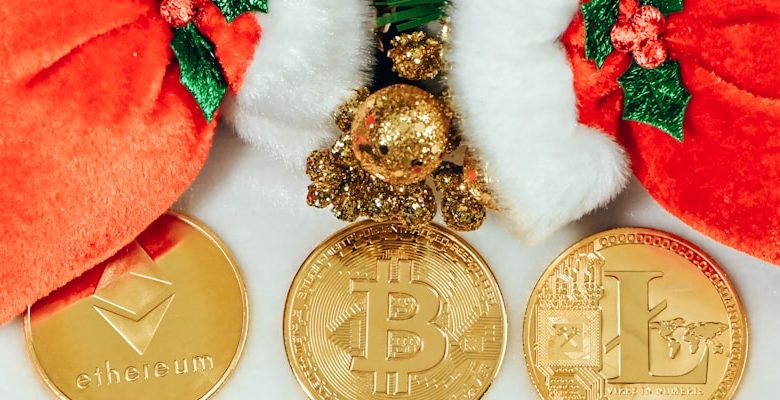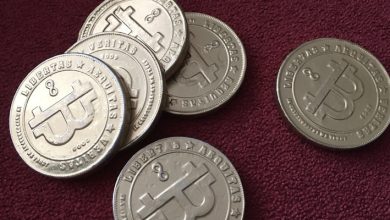The Role of Governance Tokens in Blockchain Ecosystems

- Understanding governance tokens and their importance in blockchain ecosystems
- The evolution of governance tokens in decentralized platforms
- How governance tokens empower community decision-making in blockchain networks
- Exploring the various governance models employed by blockchain projects through tokens
- Challenges and opportunities associated with governance tokens in decentralized ecosystems
- The future outlook for governance tokens and their impact on the blockchain industry
Understanding governance tokens and their importance in blockchain ecosystems
Governance tokens are a vital component of blockchain ecosystems, playing a crucial role in decision-making processes and protocol upgrades. These tokens give holders the right to vote on proposed changes, such as modifications to the network’s parameters or the addition of new features. By holding governance tokens, users can actively participate in shaping the future of the blockchain platform they are invested in.
One of the key benefits of governance tokens is that they empower token holders to have a say in the direction of the blockchain project. This democratic process ensures that decisions are made collectively, taking into account the interests and preferences of the community. Additionally, governance tokens incentivize active participation and engagement among users, fostering a sense of ownership and responsibility within the ecosystem.
Furthermore, governance tokens play a crucial role in maintaining the security and integrity of blockchain networks. Through the voting process, token holders can approve or reject proposals that could potentially impact the network’s stability or expose it to vulnerabilities. This mechanism helps ensure that only beneficial changes are implemented, safeguarding the long-term sustainability of the ecosystem.
The evolution of governance tokens in decentralized platforms
The evolution of governance tokens in decentralized platforms has been a crucial aspect of the blockchain ecosystem. These tokens play a significant role in enabling token holders to participate in the decision-making process of the platform. Initially, governance tokens were primarily used for voting on protocol upgrades and proposals. However, as decentralized platforms have evolved, the utility of governance tokens has expanded.
Today, governance tokens not only allow token holders to vote on key platform decisions but also grant them access to various platform features and rewards. This evolution has led to an increased interest in governance tokens among the blockchain community, as they offer a unique opportunity for token holders to actively engage in the governance of the platform.
Furthermore, the introduction of governance token staking has added another layer of utility to these tokens. By staking their governance tokens, holders can earn additional rewards or benefits, incentivizing active participation in the platform’s governance process. This mechanism has further enhanced the value proposition of governance tokens in decentralized platforms.
How governance tokens empower community decision-making in blockchain networks
Governance tokens play a crucial role in empowering community decision-making within blockchain networks. These tokens provide holders with the ability to vote on proposals and changes that impact the network. Through a decentralized governance process, stakeholders can voice their opinions and steer the direction of the ecosystem.
By holding governance tokens, community members have a direct say in the future development of the blockchain network. This democratic approach ensures that decisions are made collectively, rather than by a central authority. As a result, governance tokens foster transparency and inclusivity, allowing for a more equitable distribution of power.
Furthermore, governance tokens incentivize active participation within the community. Token holders are motivated to engage with the network, contribute valuable insights, and vote on important decisions. This level of engagement strengthens the overall governance process and leads to more informed and well-rounded outcomes.
In summary, governance tokens are a key component of blockchain ecosystems, enabling community-driven decision-making and fostering a sense of ownership among stakeholders. Through the use of governance tokens, blockchain networks can achieve greater decentralization, transparency, and effectiveness in their governance processes.
Exploring the various governance models employed by blockchain projects through tokens
Blockchain projects use various governance models to make decisions related to the development and operation of their ecosystems. These models are often facilitated through the use of governance tokens, which allow token holders to participate in the decision-making process. By exploring the different governance models employed by blockchain projects, we can gain insight into how these projects are structured and operated.
Some blockchain projects utilize a decentralized autonomous organization (DAO) model, where token holders vote on proposals to determine the direction of the project. In this model, decisions are made collectively by the community, with each token holder having a proportional say based on their token holdings. This model promotes transparency and decentralization within the ecosystem.
Another governance model used by blockchain projects is the delegated proof-of-stake (DPoS) model, where token holders vote for delegates to represent them in decision-making processes. These delegates are responsible for validating transactions and proposing changes to the network. The DPoS model aims to streamline decision-making by delegating authority to a smaller group of individuals, increasing efficiency within the ecosystem.
Some projects also employ a hybrid governance model, combining elements of both DAO and DPoS models. This approach allows for a balance between community participation and efficient decision-making. By leveraging the strengths of each model, blockchain projects can create a governance structure that best suits their unique needs and goals.
Overall, the use of governance tokens in blockchain ecosystems plays a crucial role in shaping the governance models employed by projects. By exploring the various governance models and their implications, we can better understand how blockchain projects are governed and how decisions are made within these decentralized ecosystems.
Challenges and opportunities associated with governance tokens in decentralized ecosystems
Governance tokens in decentralized ecosystems present both challenges and opportunities for participants. These tokens empower holders to vote on proposals that impact the future of the ecosystem. This decentralized decision-making process helps ensure that the community’s interests are represented. However, the governance process can also be complex and time-consuming, requiring active participation and understanding of the proposals being voted on.
One challenge associated with governance tokens is voter apathy. Many token holders may not actively participate in governance processes, leading to decisions being made by a small group of individuals. This lack of engagement can hinder the effectiveness of the governance system and potentially lead to decisions that do not reflect the broader community’s interests.
On the other hand, governance tokens also present opportunities for token holders to shape the direction of the ecosystem. By actively participating in governance processes, holders can influence decisions that impact the development and growth of the project. Additionally, governance tokens can incentivize holders to contribute positively to the ecosystem, as their actions can directly impact the value of their tokens.
Overall, governance tokens play a crucial role in decentralized ecosystems by enabling community-driven decision-making. While challenges such as apathy and complexity exist, the opportunities for token holders to actively participate and shape the future of the ecosystem make governance tokens a valuable asset in the blockchain space.
The future outlook for governance tokens and their impact on the blockchain industry
The future outlook for governance tokens in the blockchain industry is promising. As blockchain technology continues to evolve, the role of governance tokens is becoming increasingly important. These tokens allow holders to participate in the decision-making process of a blockchain ecosystem, giving them a voice in how the network is governed. This level of community involvement is crucial for ensuring the long-term success and sustainability of blockchain projects.
One of the key impacts of governance tokens is their ability to incentivize active participation from token holders. By offering rewards for voting on proposals or staking tokens to secure the network, governance tokens encourage engagement and help maintain a healthy ecosystem. This active participation can lead to more efficient decision-making processes and ultimately contribute to the growth of the blockchain industry as a whole.
Additionally, governance tokens have the potential to increase transparency and accountability within blockchain ecosystems. By giving token holders a say in how the network is managed, governance tokens help ensure that decisions are made in the best interest of the community. This level of transparency can build trust among users and attract new participants to the ecosystem, further driving adoption and innovation.
Looking ahead, governance tokens are likely to play an even larger role in shaping the future of the blockchain industry. As more projects implement governance mechanisms and experiment with different models, we can expect to see new ways of community governance emerge. This evolution will continue to push the boundaries of what is possible with blockchain technology, opening up exciting opportunities for decentralized decision-making and collaboration.
In conclusion, governance tokens are a powerful tool for enabling community participation and driving the growth of blockchain ecosystems. As the industry continues to mature, governance tokens will undoubtedly play a central role in shaping the future of decentralized governance. By empowering users to have a say in how networks are managed, governance tokens are helping to build a more inclusive and transparent blockchain ecosystem for all stakeholders.



